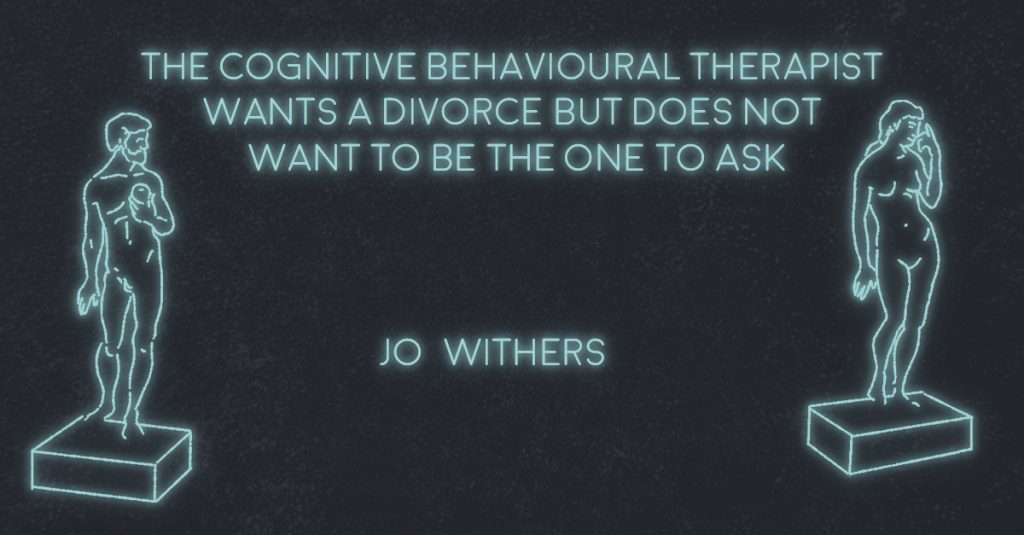Ten months before she wants things to end, she buys two figures sculpted in soapstone, one male and one female. She positions them on the bedroom windowsill, where they will be the first thing seen each morning, the last thing seen each night. Every day she moves the figures a fraction apart. Every day she turns the male slightly into shadow, every day she moves the female closer to the light.
Eight months before she wants things to end, she redecorates, weaving bad memories throughout the apartment like mold. She scents the inside of their pillows with crumpled pine leaves to remind him of the skiing holiday where she flirted endlessly with the waiter. She covers the coffee table in the lounge room with black and white art magazines, like the ones in the waiting room at couple’s counselling. She displays erotic prints on the lounge room walls: a ballerina who looks just like her, wrapped around a dancer who looks just like his best friend.
Six months before she wants things to end, she conceals a thin wire through the lining of the sofa, from her side onto his. Every time he says something romantic, she pulls the wire a little at her end so it scratches the back of his neck, thin and pointed like a needle. ‘I missed you today,’ scratch, ‘I like your hair like that,’ scratch, ‘I love you,’ scratch.
Four months before she wants things to end, she talks to him after he falls asleep. She slips the curtain back and lets the moon inside, licking the walls like patterns on a zoetrope. She watches his eyelids dance as he grows restless, smiles as his peace of mind strains. She leans closer, feeds his subconscious with hatred. She whispers names of her past lovers, intertwines them with the names of poisonous plants and sexual positions. She tells him what she liked, what she doesn’t like with him.
Two months before she wants things to end, she chooses a symbol to mark the culmination point. She decides on a cross. She bombards him with this image at the conclusion of everything. When they finish eating, she places her knife and fork in a cross on her plate. When the T.V. show ends, she crosses her legs. When the day is over, she marks a thick black cross on the kitchen calendar. When they finish having sex, she strokes a cross against his back with her fingertips.
One month before she wants things to end, she begins to highlight words in newspapers, magazine articles, cereal boxes, instruction booklets. Words like ‘terminate’, ‘dispose’, ‘detach’.
On the day she wants things to end, she knocks the soapstone man to the floor, leaves it lying face down under the bed. She whispers belladonna and the name of her first lover over and over as he sleeps. She circles every spiteful, affecting negative that she can find—‘separate’ on the laundry powder, ‘divide’ on the cake mixture, ‘dissolve’ on the salt. She leaves him a note, ‘See you tonight’ followed by ten thick black kisses. Cross, cross, cross, cross, cross, cross, cross, cross, cross, cross.
When she returns from work, the house is still. She smiles at the inertia as she moves from room to room. His marks are already fading, no footprints on the sofa, no ring stains on the coffee table. His clothes have been cleared from the wardrobe; his accessories have been taken from the drawers. As she wanders through the kitchen, she ignores the water filter blinking ‘empty’, pretends she doesn’t notice the microwave label urging ‘Do not dissemble parts’. In the bedroom, evening turns the cream walls sepia, on the windowsill the soapstone woman absorbs the last light and warmth from the fading sun.

